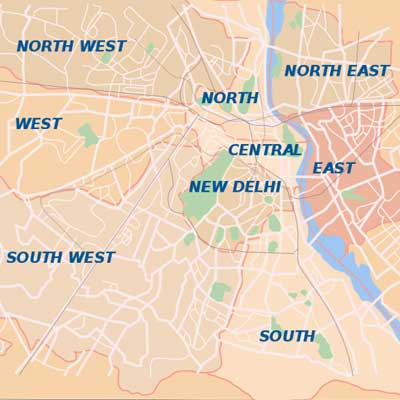

The recent move to unify the three municipal corporations of Delhi into a combined entity again after 11 years has triggered a debate on the impact of size and scale of municipalities on efficiency of governance. Three experts discuss the issue with E Jayashree Kurup.
The Delhi Municipal Corporation (Amendment) Bill, 2022, to reunify the three municipal corporations in the Capital, was introduced in the Lok Sabha on March 25, 2022. Even as the debate over the political motivations of this move are being discussed, there is a larger issue whether this move to reunite the three Municipal Corporations will have any significant impact on the city’s governance structure.
Former Secretary to the Government of India, Sudhir Krishna feels that smaller units are better for governance while bigger units at the planning stages bring efficiency. “Delhi is large enough for three municipalities,” he says. As the MCD is a governance unit, it can function better in smaller units. However, he believes that all local bodies need to be enabled with technology for better surveillance and development of the city.
Hitesh Vaidya, Director National Institute of Urban Affairs, and a noted urban planner himself, advocates the principle of a metropolitan governance body that looks after the three MCDs with a higher body that looks after coordination and expansion, much like the Greater London Authority. He does not subscribe to the thought that planning areas should be large but governance areas should be small.
For Prof KT Ravindran, eminent urban planner and former dean of the School of Planning and Architecture, the key issue is fixing the governance structure itself. “Why is it that some have better collections and others do not? Technology is available for efficient monitoring of the number of properties in each municipal corporation but they are neither used nor implemented,” he says.
Krishna agrees. The lack of efficiency, he says, comes from lack of a capacity framework, despite good satellite imagery being available to all local bodies and also lack of motivation. “Municipalities have to be guided,” he says. Many times, local councillors have good ideas about governance of their wards. If the authority is too big, then their voices are not heard and they get lost in the noise.”
So how is it that cities such as London are able to manage governance effectively through a system of burroughs? Can Delhi not emulate it? At the other end of the spectrum is Tokyo, where the Centre prefecture is larger than the combined MCDs. Which system can work more efficiently? Krishna maintains that when there is not too much social and economic disparity among the citizenry, large units can function efficiently. “But local governance has to be about local issues. Councillors need to have an emotional connection with their citizens on local issues.” He refers to the principle of subsidiarity where the lowest level of body that can discharge its functions effectively should remain.
The main argument in favour of the unification is that of financial disparity. Krishna believes that the municipal finances should be transferred directly to the local governments by the centre. The rules are on the basis of the finance commission. Why then does the South Delhi Municipal Corporation manage better local tax collections while the North languishes? The Aam Aadmi Party has alleged that of the Rs 21,000 crore that should have been collected by NDMC, only Rs 6,100 crore has actually been collected.
Krishna points to the multiplicity of agencies in Delhi and the skewed reporting structure which is responsible for inefficient management. Delhi has been kept outside the purview of the 74th Amendment. City plans are prepared by Central agencies such as the Delhi Development Authority, with little or no consultation with the local governments. Once it is passed, zonal plans have to be implemented by the local bodies, irrespective of whether they have the money or are capable enough to implement them. Also with huge violations of the law at every level, local bodies expend a lot of energy on surveillance to check violations at every level, leading to inefficiency.
Trifurcated or unified, the problems of the MCD are not simply of size. It also includes finances, efficiency of governance and management of local issues at the local area level. While the timing of the announcement of unification and the consequent postponement of local elections have drawn flak and allegations of political motives, experts are also trying to work out a model where efficiency of governance and adequacy of funds can be managed.
There is no one size fits all solution to municipal governance. The chosen format depends on the disparity of incomes and class of citizenry, the efficiency of financial management and quality of governance. The third tier of governance in India suffers from lack of autonomy and capacity building among the bureaucracy and officialdom. Delhi’s efforts to bring better governance will also depend on the political will to make it work.
About the author: E Jayashree Kurup is Director, Real Estate & Cities at Wordmeister Editorial Services LLP